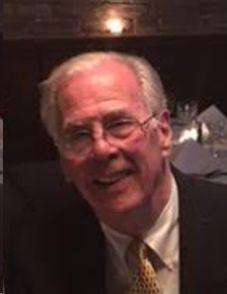A Conversation With Oakland's Unofficial Historian, Kevin Heffernan

Q -- How did your interest in Oakland history begin?
A -- By accident. It began 40 years ago when my wife and I moved here from Fairlawn. At first I decided to research the history of my property which I did back to the Civil War. I came across the name of Demarest as a prior land owner. But who was he? And so it began. That morphed into seeing several strange things in Oakland that piqued my curiosity. Finding out more about those things became a hobby. And as I realized the incredible history of this town, it became a passion. And now that I have over 25 gigs of Oakland history on my computer, I realized that I do not own it. Rather, I am merely the temporary caretaker for future generations.
Q -- Where have you found information about the borough’s past?
A -- Everywhere. And I am proud that I am shameless as to where I obtain it. So much was being lost as people die, and move away. At first John Madden scanned everything in sight from the Oakland Historical Society files at the Van Allen House. We also asked old-time Oakland residents which led to additional sources. Then many people contacted me and offered me access to what they had. It snowballed to 25 gigs today.
Q -- As you go around Oakland, I wonder, do you see things through a historic lens?
A -- Absolutely, everyday. I look through what stands today and see every building in place from Long Hill to Franklin Avenue during any particular time period from 150 years ago to the 1960s. I see their shadows, feel their souls and hear their voices. And I weep for their loss and condemn the massive lack of vision of prior town officials, which was of biblical proportions. Oakland was a true Mayberry while having marvelous Victorian buildings and homes that would challenge the best of Cape May today. Each lost building had both its own story and a contribution to what is Oakland today. While we cannot bring them back we can preserve what remains and remember well and honor those that are gone.
Q -- You have written books about history? What are they and where can people find them?
A -- Yes, I have written two books about Oakland history. The first book was co-authored with John Madden and published by Arcadia Press. The title of it is "Images of America: Oakland, N.J." It’s basically a pictorial history of Oakland during the Victorian period from about 1870. The second book, "A History of Oakland: The Story of Our Village," is a text history of our community. It enabled me to engage the reader with a narrative of facts, truths and hidden treasures of our rich history. Both are available through Amazon.
Q -- What do you feel is most important about knowing the history of one’s community?
A -- As Cicero said so well, “Nescire autem quid antequam natus sis acciderit, id est semper esse puerum” ("To be ignorant of what occurred before you were born is to remain always a child.") He then added, “For what is the worth of human life, unless it is woven into the life of our ancestors by the records of history?” As children, we lived at addresses but come from communities. Our childhood home is the core of a much larger fabric of our community that serves to create who we are. And the genesis of that fabric is the shared values handed down from the forefathers and even the architecture of the community. Yet, I bow to the words of Arthur Vervaet, the mayor of Oakland in 1952, who said, upon the occasion of the celebration of Oakland’s 50th anniversary, “But has it occurred to us why we are celebrating? To know where we have been….One of values of an anniversary is looking back. History gives us a perspective, of trust, a reason for the proper care of the resources which served our forefathers and must also serve our heirs..."
Q -- If you could have a conversation with someone from Oakland’s past, who would it be and why?
A -- Probably, it would be David C. Bush, Sr. Why? He effectively was the founder of Oakland when he brought the railroad here in 1869 and built the train station in 1871. He was also a farmer and slave owner, the first post master, and named our community Oakland in addition to building the first general store. And, did I mention that he was the driving force behind Oakland seceding from Franklin Township to become an independent town in 1902? Simply stated, there is no other human being who encompasses more history and more effect upon this community than he. I’d just love to have a beer with him if for no other reason than to witness greatness first hand.
Q -- What do you hope people who read your Oakland history works gain from it?
A -- I want my reader to understand and appreciate the quality, depth and heritage from where they came. I want them to greatly value the history of Oakland and for them to understand that our actions today form tomorrow’s history. We are the caretakers of Oakland’s past, the preservers of it for our children and the decision-makers for future generations. The knowledge and appreciation of Oakland's history brings great responsibility.

